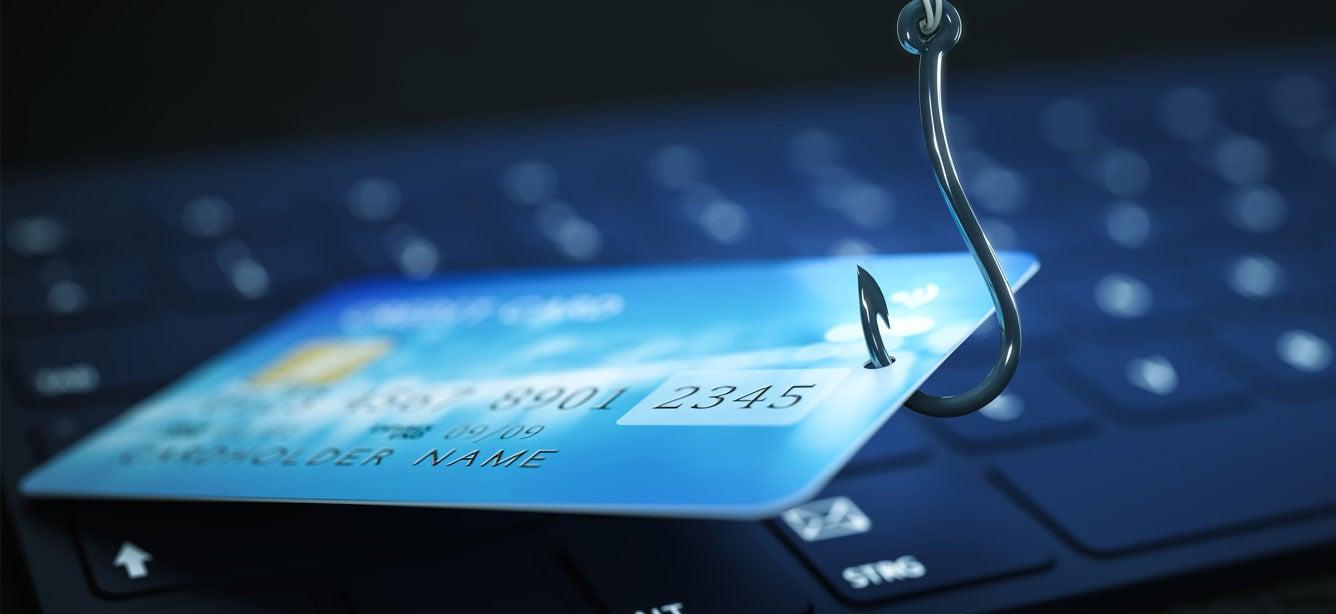
You may have heard of government imposter scams—when criminals attempt to defraud older adults by pretending to be from agencies like the Internal Revenue Service (IRS), the Social Security Administration, or Medicare.
Business imposter scams work in a similar way, taking advantage of consumers’ trust to steal their money and identity.
Charlotte Cowles, an established finance columnist, was one of these consumers. After losing $50,000 in a sophisticated Amazon scam, she shares her experience as a warning to others. "I still don’t believe that what happened to me could happen to anyone, but I’m starting to realize that I’m not uniquely fallible," she wrote in her column in New York Magazine's The Cut.
In 2020, $196 million in reported losses were attributed to business imposters. That figure rose to $660 million in 2022.1 Let’s take a closer look at how business imposter scams work, their warning signs, and how to protect yourself from this growing threat.
What is a business imposter scam?
A business imposter scam (or business impersonation scam) typically starts with a phone call, email, text message, or private message on social media. The call or message appears to be from a familiar and trustworthy business—such as a popular retailer, a financial institution, or utility company. The communication you receive looks perfectly legitimate, with convincing logos and website links. If it’s a phone call, the person on the other end of the line sounds professional and authoritative.
The problem is that the sender or caller is not from a reputable organization at all. Rather, they’re a highly trained scammer who’s out to steal your personal information—and your money.
What are some examples of business scams?
1. USPS scams. Have you received a text message with an odd-looking website link stating that USPS (United States Postal Service) needs your response regarding a package delivery? Do not click on the link—this is a common scheme called “smishing.” Smishing, a variation on phishing, involves text messages claiming to be from reputable organizations. The bad actors who commit these crimes are aiming to get their hands on your financial details.
While USPS scams are one of the top trending package delivery scams today, you may also see texts professing to be from UPS (United Parcel Service), FedEx, or DHL. If you receive a message out of the blue, it’s likely a scam, since these carriers do not typically send out unsolicited texts. Even if you are expecting a package, you’ll be required to initiate tracking notifications yourself—usually by registering or providing a tracking number online.
2. Amazon scams. Amazon scams can take on many forms. Here’s one example: You get a text alert or call from an Amazon “representative” stating there's a problem with your account (e.g., an unauthorized purchase was made and your account is now frozen). They then ask you to verify your account login credentials or credit card number under the pretense of "fixing" the issue for you.
It seems authentic—the link provided in the message appears to go directly to Amazon's website. But don't be fooled; tech-savvy scammers can spoof websites and even phone numbers to make them look like the real deal. In reality, their fake website is a convenient way to funnel money from unaware consumers straight into their own bank account.
While these types of phishing schemes can be perpetrated in the name of any business or financial institution, Amazon is the most common business impersonated by scammers. From July 2020 through June 2021, roughly one in three consumers who reported a business imposter scam said the scammer claimed to be an Amazon representative.2
3. Utility company scams. This scam involves getting a threatening call from your "utility company" saying your bill is overdue and your electricity or gas will be shut off if you don't pay up right away. The caller tells you to make your payment through a money transfer site (e.g., Western Union), online payment app (e.g., Zelle, Venmo, or CashApp), or cryptocurrency. Or, they might ask you to buy a gift card and send them the numbers off the back. Demands for these payment methods are a telltale sign of a utility company scam, because they’re nearly impossible to trace.
4. Subscription renewal scams. Subscription renewal scams typically begin with an email from a familiar business stating your subscription or membership has expired. Often, the message includes a “limited time” offer with an irresistible deal or discount. You're asked to click a link in the email that takes you to a payment page. Although the website you land on looks credible, it's actually run by scammers looking to get a hold of your credit card and personal data.
5. Investment imposter scams. Investment imposter scams have multiple variations. Generally, these scammers pose as registered investment professionals from well-known firms. They post on social media or infiltrate WhatsApp group chats to talk about how much they've made in cryptocurrency or other investment strategies. They share links leading to a fake but legitimate-looking trading platform, where they persuade investors to make deposits into bogus accounts controlled by the scammer.
How can I protect myself from business scams?
The following 6 strategies can help you keep your money and your identity safe from scheming cybercriminals:
- Look for red flags: Signs of a scam include unsolicited communications with an urgent or even aggressive or threatening tone. Poor grammar and spelling are also tipoffs, as are links that are shortened using bit.ly or a similar service. A sender’s email address may not appear quite right, either—for example, it may look like "@my.siriusxm.site" instead of "@siriusxm.com."
- Contact the business directly: If you receive a call or text out of the blue claiming to be from a known business or financial institution, don’t act immediately on any requests (including clicking on links within text messages or emails). Instead, call the company directly using the number listed on their official website or your monthly bill/statement.
- Never send money to someone whose identity you can’t verify: View any requests for payment via online payment apps, bitcoin, or gift cards with suspicion; these are signs of a scam. Legitimate business organizations do not require these forms of payment. If you send money this way, you are not likely to get it back. This applies to personal information, too. Do not share your Social Security number, birth date, license number, or banking information in response to an unexpected call, email, or text. This information can be used by scammers to steal your identity and your money.
- Talk to someone you trust: When you receive a strange call or message from a company requesting payment or personal information up front, take a breath. Scammers want you to act quickly so that you don’t have time to think things through. Instead, explain the situation to someone you trust, like a friend or family member.
- Do your research: If a person claims to be a financial professional working for a particular firm, try to verify their identity. Search online for their name and company and match up the contact information they gave you with what you find on the internet.
- Embrace healthy skepticism: Be wary of impressive consumer deals and investment opportunities promising low risk and high returns. If something seems too good to be true… (well, you know the rest).
How to report business imposter scams
Business imposter scams should be reported to the Federal Trade Commission (FTC) as soon as possible. You can do this by filing a report online or by calling 1-877-382-4357 (TTY: 1-866-653-4261). In addition, some companies, like Amazon, have dedicated email addresses you can use to report suspected business impersonation scams.
Reporting a scam is like putting up a big red “caution” sign on a dangerous road, says Jessica Johnston, NCOA's Senior Director for the Center for Economic Well-Being. “By speaking up, you're not only protecting yourself—you’re potentially saving other older adults from falling into the same trap. Plus, reporting helps authorities track down the criminals and disrupt their operations. This makes it harder for them to prey on more people.”
Sources
1. Federal Trade Commission, Business Blog. FTC crunches the 2022 numbers. See where scammers continue to crunch consumers. February 23, 2023. Found on the internet at https://www.ftc.gov/business-guidance/blog/2023/02/ftc-crunches-2022-numbers-see-where-scammers-continue-crunch-consumers
2. Federal Trade Commission, Consumer Protection Data Spotlight. Amazon tops list of impersonated businesses. October 20, 2021. Found on the internet at https://www.ftc.gov/news-events/data-visualizations/data-spotlight/2021/10/amazon-tops-list-impersonated-businesses




